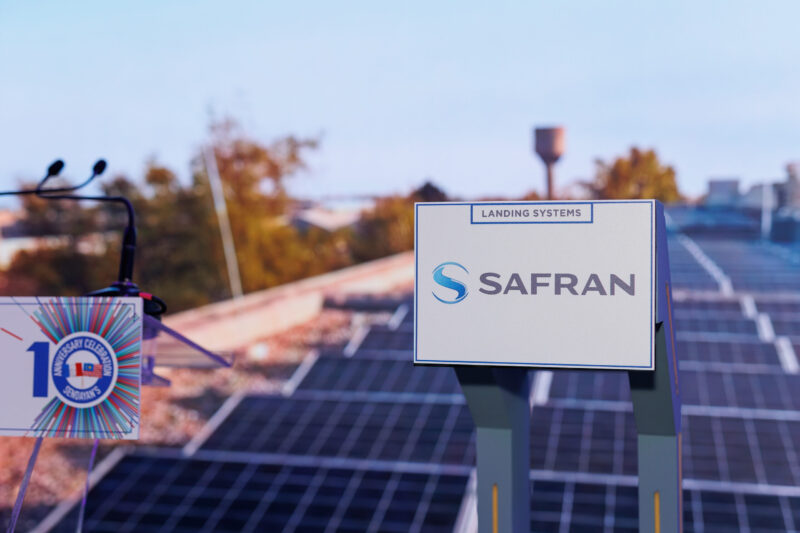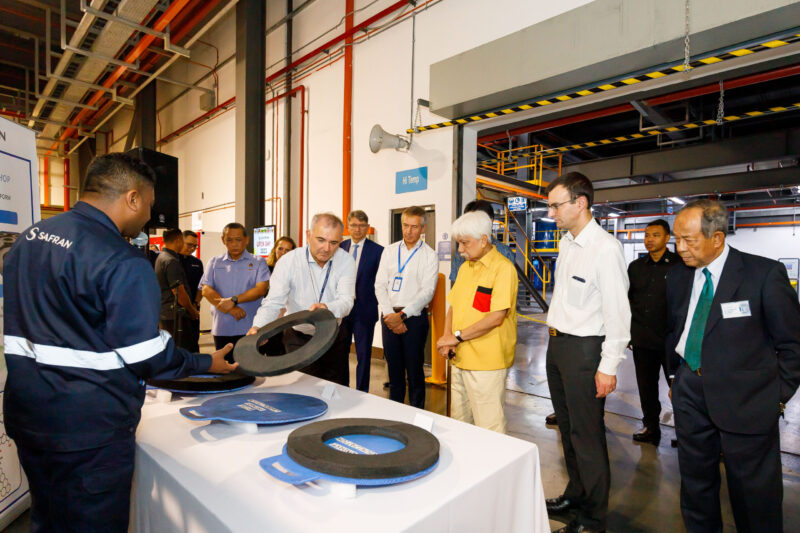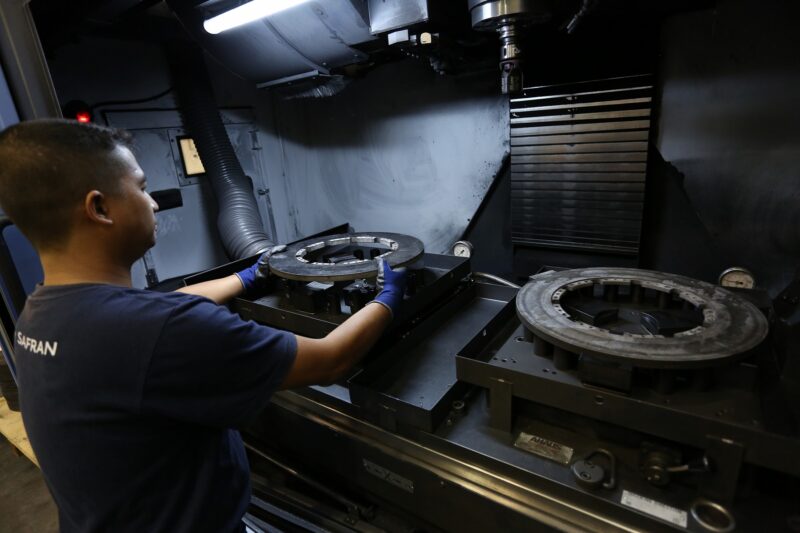
This site
is mobile
responsive

The global aerospace industry has faced significant economic challenges in recent years, especially within the aviation sector. Despite these obstacles, Malaysia’s aviation industry has demonstrated resilience and charted a course for robust growth, thanks to the steadfast support of industry leaders. With over 230 Malaysian companies engaged in key sectors like maintenance, repair, and overhaul (MRO), as well as aviation manufacturing and advanced training, the country is poised to become a leading aerospace hub in Southeast Asia by 2030, while integrating sustainable practices into its strategy.
Safran, a globally recognised leader in defence, aviation, and space, has been a key player in this ambitious vision. With a presence in Malaysia spanning more than 50 years, Safran’s commitment to operational excellence, innovation, and environmental sustainability positions it at the forefront of the industry’s green transformation. The company’s decision to establish a carbon brake production site in Sendayan, Negeri Sembilan, underscores Malaysia’s appeal as an investment destination, driven by its competitive energy resources, skilled workforce, and robust support from MIDA.
Safran’s strategic investment in Malaysia aligns with its global commitment to achieving carbon-neutral aviation by 2050. By investing in low-carbon technologies and sustainable production processes, Safran is meeting the growing demand for carbon brakes in a manner that prioritises environmental stewardship. Since establishing its cutting-edge facility in Sendayan, Negeri Sembilan, in partnership with Malaysia’s Ministry of Investment, Trade and Industry (MITI) and MIDA, Safran has solidified its presence, providing advanced aerospace solutions to industry giants such as Airbus, ATR, and Boeing, with a dedicated workforce of over 140 highly skilled professionals.
At the heart of Safran’s operations in Malaysia is a commitment to circularity, an approach that ensures resources are reused, recycled, and minimised throughout the production cycle. Their innovative 2-for-1 remanufacturing solution exemplifies this philosophy, creating new carbon brakes from used discs and recycling components that can no longer be remanufactured into oven tooling. This pioneering approach not only reduces waste but also sets a new standard for sustainable practices within the aerospace industry, reinforcing Safran’s role as a leader in industry circularity and environmental responsibility.
Safran Landing Systems Malaysia has already achieved a remarkable 27% net reduction in carbon emissions compared to 2018 levels. This achievement is driven by innovative technologies such as on-site electricity generation from waste gas and solar panels, alongside enhanced utility management systems. Moreover, Safran is on the cusp of introducing an innovation that will further reduce its gas consumption and consequently its CO2 emissions. Associated with 100% green electricity, this process will be a major step in SLS’ journey towards zero emission.

This strategic investment by Safran is not just about enhancing its operational capacity; it also reflects Malaysia’s alignment with global and national objectives. Malaysia’s economic strategies, as outlined in the MADANI Economy Framework and the New Industrial Master Plan 2030 (NIMP 2030), emphasise the importance of sustainability, innovation, and high-tech industry development. By choosing Malaysia, Safran is tapping into a supportive environment that is committed to advancing sustainable development and driving high-quality, capital-intensive projects that are critical to the country’s long-term growth.
In alignment with Malaysia’s National Energy Transition Roadmap (NETR), Safran announced in 2023 the first phase of a capacity increase at its Sendayan plant. This expansion reflects not only the company’s confidence in Malaysia as a strategic partner but also the potential for further investment as renewable energy sources become more available, enabling sustainable production growth.
As Malaysia continues to expand its aerospace manufacturing capabilities, the integration of sustainable practices not only enhances its competitiveness on the global stage but also underscores its commitment to a greener future. MIDA remains pivotal in promoting high-quality, capital-intensive projects that align with Malaysia’s sustainable development agenda, ensuring that the aerospace sector continues to grow while preserving environmental integrity.
This strategic alignment between Malaysia’s national goals and the forward-thinking investments of companies like Safran illustrates the country’s ability to attract and retain world-class investors who are committed to innovation, sustainability, and growth. Together, we are charting a path toward a more resilient and environmentally sustainable aerospace industry, solidifying Malaysia’s position as a leader in the region and a beacon for green aerospace solutions.
